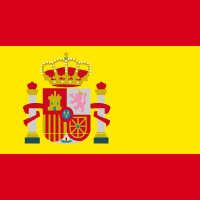Established in 2001 and acquired by Sky in 2007, Oddschecker is an odds comparison website which compares the various prices offered by leading bookmakers and betting exchanges. The company is also able to facilitate transactions through its own platforms, having gained access to the APIs of several of the bookmakers that it works with.
The fast-moving nature of the betting industry means that Oddschecker is tasked with processing between 500 and 600 odds updates per second, before rapidly refreshing the website interface so that users have access to the most reliable information. As such, speed is of the essence and the IT systems that underpin everything the company does have to be responsive, reliable, and flexible enough to cope with highly demanding workloads.
The challenge
When Oddschecker hit the market, it hosted all of its data and applications within its own on-premise data centre. This was sufficient in the company’s early days, but rapid growth meant that the data centre had reached a point where it was operating at full capacity, which was unsustainable in the long term and threatened to constrain efforts to grow further.
As the organisation had ambitious plans to continue its expansion, Oddschecker realised that migrating its entire stack to the cloud was the most effective way of sustaining its momentum. Given the company’s unique requirements as an odds comparison website and the fact that it operates in a heavily regulated industry, meant that Oddschecker needed to carefully scope out its requirements, including which cloud provider would best suit their needs.
As Matt Robinson, Head of Technology at Oddschecker, explains: “Our on-premise data centre solution had served us well in the early stages of our development but we quickly reached a point where a single data centre with limited capacity couldn’t meet our needs for the long term. The need for increased processing power fluctuates rapidly in our industry, with major events such as the Grand National requiring a rapid boost, while demand then drops during quieter periods.
“With all of this in mind, we needed to embrace a much more flexible approach to our IT so cloud seemed like the obvious way to go. The challenge was that we had limited in-house expertise in this area so we needed some outside help to determine the best course of action, and to ensure that we remained compliant with regulations."
The solution
Sharing Google Cloud’s commitment to DevOps methodologies and open source technologies, Claranet is a natural partner to support Oddschecker to employ Kubernetes to its full potential. With their technical expertise and commercial flexibility, Claranet has helped Oddschecker develop a data-driven philosophy that will enhance their business goals.
Google Cloud Account Manager
After assessing their options, Oddschecker decided that Google Cloud Platform (GCP) was best suited to their aims, thanks to the strength of the Google Kubernetes Engine as an environment for employing and managing containers at scale. With an ambitious 12-month timeframe in which to make the move, Oddschecker called upon the GCP, infrastructure and DevOps expertise of Claranet.
The project was made more complex by the fact that Oddschecker had specific applications that needed to be migrated from the old setup into the new one, including certain legacy systems and GitLab deployments.
To help maintain this sense of continuity, Claranet provided close advice and guidance on how to employ Kubernetes to its full potential. This involved assisting Oddschecker in seamlessly migrating active applications and systems using containers, and containerising legacy applications to operate effectively on the Google platform.
At the same time, the new infrastructure was built to be able to rapidly scale capabilities up or down according to the needs of the business.
The knowledge that we have gained from working with Claranet is now being used for future expansion
Matt Robinson, Head of Technology, Oddschecker.
Robinson added: “Given the complexity of moving so many environments into new infrastructure, making the process as smooth as possible was always going to be a challenge. However, Claranet made sure that the migration worked first time, collaborating closely with our development and continuous integration teams to make the deployment of containers trouble-free. Alongside this, Claranet also provided training to upskill our development team, giving us the ability to effectively manage our infrastructure post-migration.”
The result
The move to cloud-based infrastructure has been instrumental in helping Oddschecker to maintain its growth in the long term. The removal of capacity limits has meant that the company has a great deal more freedom to carry out innovative projects without the fear of being held back by inflexible systems, which is essential in the gambling industry.
Crucially, the migration has also enabled Oddschecker to develop a more data-driven philosophy, as having a more flexible, scalable infrastructure solution in place means that the data the company gathers can be managed and leveraged more effectively. This means Oddschecker is able to use insights gathered from collected data to enhance the quality of its products.
Robinson concluded: “Moving to the cloud means we are no longer bound by capacity, which was frequently an issue when we managed our infrastructure on-premise. The betting industry is constantly evolving, and this new solution has been hugely important in making sure we can keep pace with this change, while being able to continuously bring innovative new products and services to our customers.
“It wouldn’t have been possible to complete the project in the time we did without Claranet’s input. The company’s experts took the time to work with us to make sure that we had a common goal and were fully aligned on what we were trying to do, which made for a very positive working relationship that we are still able to call upon if we’re in need of assistance with the ongoing management of the new solution.
“As far as the future is concerned, the knowledge that we have gained from working with Claranet is now being used within the business, giving us the internal expertise to put us on a positive footing for future expansion.”










